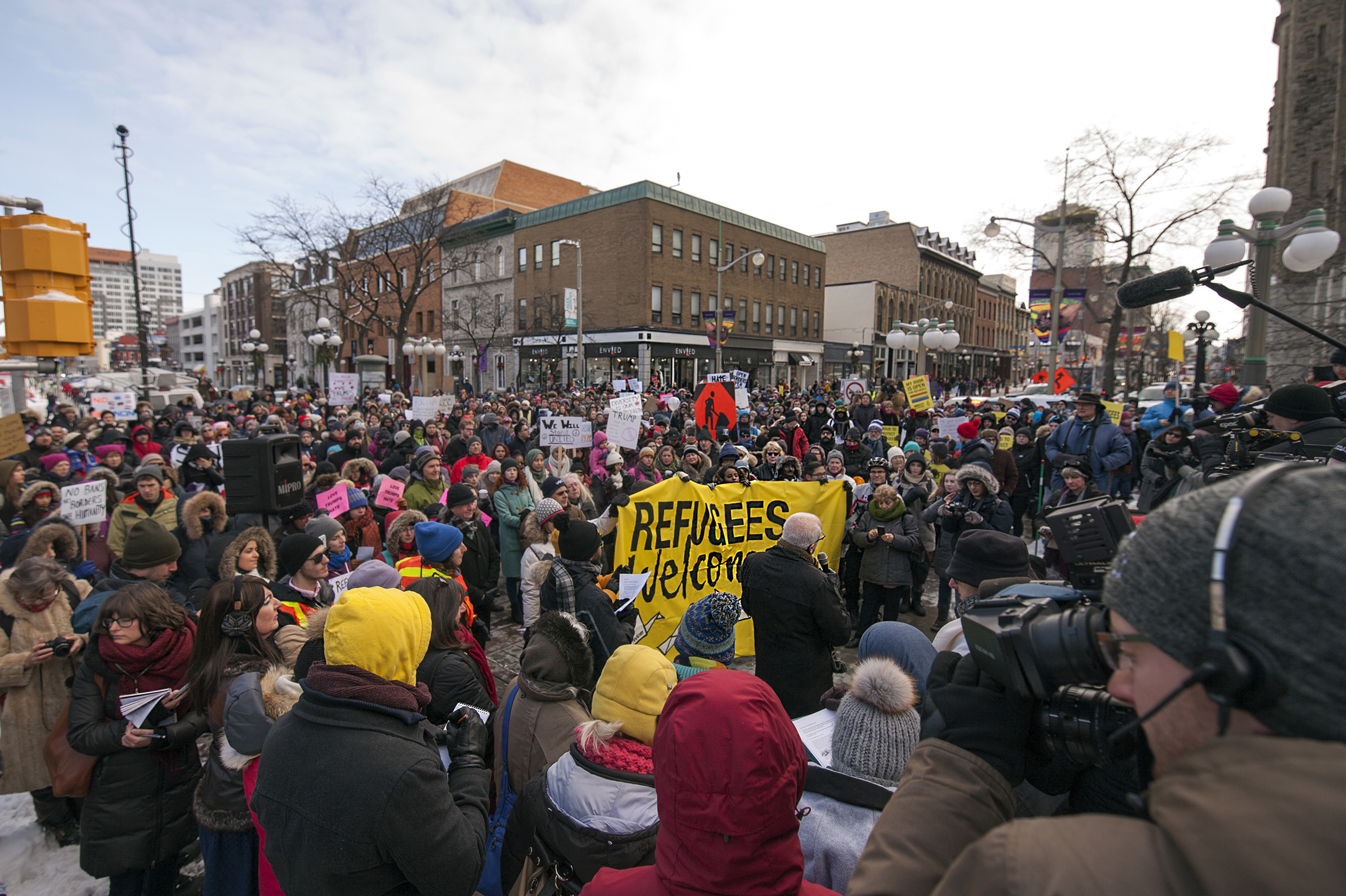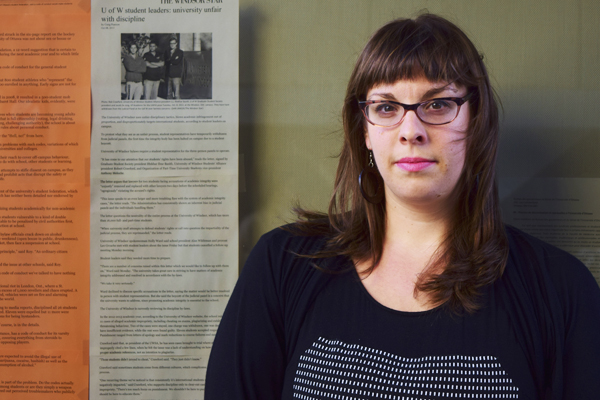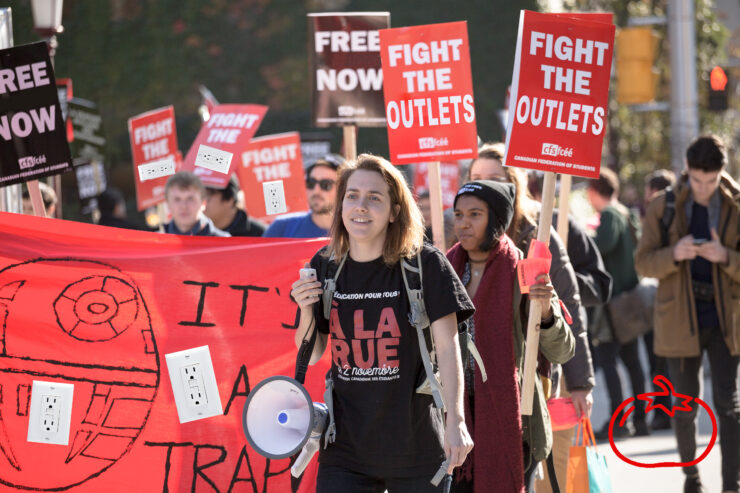Students partake in human chain, Parliament Hill and campus vigils
Following the Jan. 29 shooting of six Muslim men at a mosque in Québec City, staff, faculty members, and students at the University of Ottawa gathered in solidarity and to pay their respects.
A vigil was held on Jan. 31 in the University Centre Agora, hosted by the University of Ottawa Muslim Students Association (UOMSA).
According to Ziydan Zeidan, president of the UOMSA, the vigil was meant to “provide Muslim students with a means of healing after such a disastrous attack in Québec City.”
“This event helped reassure Muslim students that the university would stand against all forms of hate, and demonstrated the support from the various other communities on campus,” said Zeidan, noting the presence of other religious leaders such as a rabbi and Protestant chaplain.
“It was a chance for us to put aside our differences, and come together in our common goal to eliminate hate on our campus and in our communities.”
Those present at the vigil included members of the Student Federation of the University of Ottawa (SFUO) executive, a representative from the U of O’s Board of Governors, and members of the Muslim community in Ottawa.
The vigil also featured Muslim students who discussed their identities as Muslim-Canadians.
According to Zeidan, “Being a Muslim-Canadian means living in a country that values the right to practice one’s faith. It means being able to worship God and practice Islamic principles, while still holding on to Canadian values, as the two are not mutually exclusive.”
The on-campus vigil also featured the university’s president, Jacques Frémont, who discussed the value of diversity on campus.
“We welcome students from all over the world … when I arrived a little more than six months ago, I just couldn’t believe how smooth this campus works,” said Frémont, describing the campus as one with “immense richness.”
Frémont also addressed the travel ban issued in the United States against seven Muslim-majority countries, saying that his administration will be “keeping a close eye on what goes on south of the border.”
The following day, a statement was released by the U of O to indicate that measures will be taken to assist those affected by the travel ban.
A separate vigil was also held the day before on Parliament Hill, with approximately 1,000 people in attendance who gathered around the Centennial Flame. Notable speakers and attendees included the Governor General of Canada David Johnston and Ottawa city councillor Catherine McKenney.
The day before the U of O vigil, students at the university along with others in the community gathered at the U.S. embassy to form a human chain in opposition to the travel ban against Muslim-majority countries.
The demonstration featured a speech by Alex Neve, secretary-general of Amnesty International, who said, “we are here in solidarity against hate, in solidarity against discrimination … it is a fictitious reality to continue to pretend that that the U.S. is safe for refugees.”
Neve told the students in attendance that “when you come together with people to take action, it changes things.”
The Fulcrum also spoke with Adam Gilani, a third-year U of O common law student, who said he was protesting “to show that Canada does not stand for politics of hatred and division and exclusion … we all have an obligation to stand up for justice across our country and across the world.”
According to Gilani, we need to “remind our leaders, our politicians, that Canadians have a very strong interest in standing up for justice and for the politics of inclusion.”





